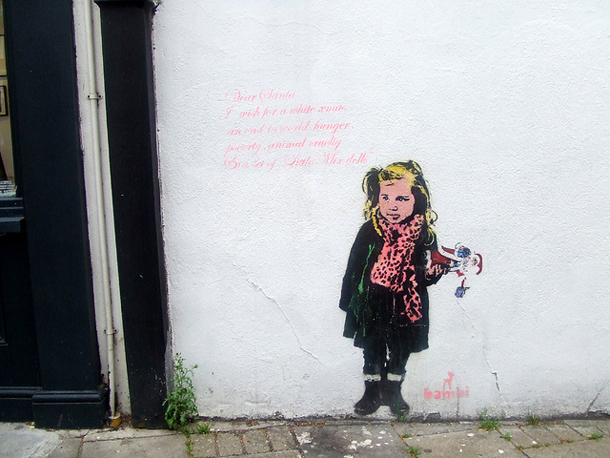Next stop for Save the Children? London


Save the Children is returning to its roots. On Tuesday, the nonprofit launched a campaign to raise awareness of childhood poverty in the United Kingdom where it was founded nearly 100 years ago.
For the organization that leveraged weekday infomercials, compelling images, and a plea for "less than $1 a day" donations, into a $618 million nonprofit organization spanning 120 countries, the movement is a striking aperture recalibration.
For years, Save the Children was a target of scholars and critics who take issue with the organization's depiction of children from developing countries. Luke Dodd wrote as much in a 2005 feature in The Guardian:
"Many of the images used to raise public awareness and money play to, and indeed perpetuate, racial and sexual stereotypes. Do the abject and passive victims (invariably women and children) so beloved of photographers represent an extension of 19th-century colonialism – Africa as inferior, feminised, infantilised, the object of our charity?"
By directing attention inward, however, Save the Children is bucking this criticism. Rather than projecting attention outside of developed world, it's refocusing attention inward with the hope of pressuring the UK government to stick to 2020 child poverty targets, encourage a living wage, and bolster the nation's welfare system.
"Poverty in the UK is different to some of the poorer countries in the world," said Chris Wellings, Save the Children's UK head of policy, told The Guardian Tuesday. "It is more nuanced and poses different problems. But it does not mean we cannot stand up for children's rights in the UK."
On the heels of a royal wedding, the Queen's Jubilee, and the 2012 Summer Olympics, it's difficult to imagine a poverty-stricken United Kingdom. In spite of a per-capita income that outpaces France and Japan, some 3.5 million British children live in poverty, according to to Save the Children's recent report, "Child Poverty in 2012: It Shouldn't Happen Here."
Save the Children is not the first to call for a reexamination of UK social policy. In June, Oxfam's director of UK poverty Chris Johnes warned that cost-of-living increases coupled with existing defecit-reduction policies could return the nation to "levels of inequality not seen since Victorian times."
The UK is not the first developed country with challenges, or the earn the attention of Save the Children. The organization has been operating in the United States since 1932, when it opened in Appalachia to assist children of coal miners. Last year alone, its programs in early childhood education, literacy, health eating, and disaster relief reached 185,000 American children.
This post was originally published on Smartplanet.com